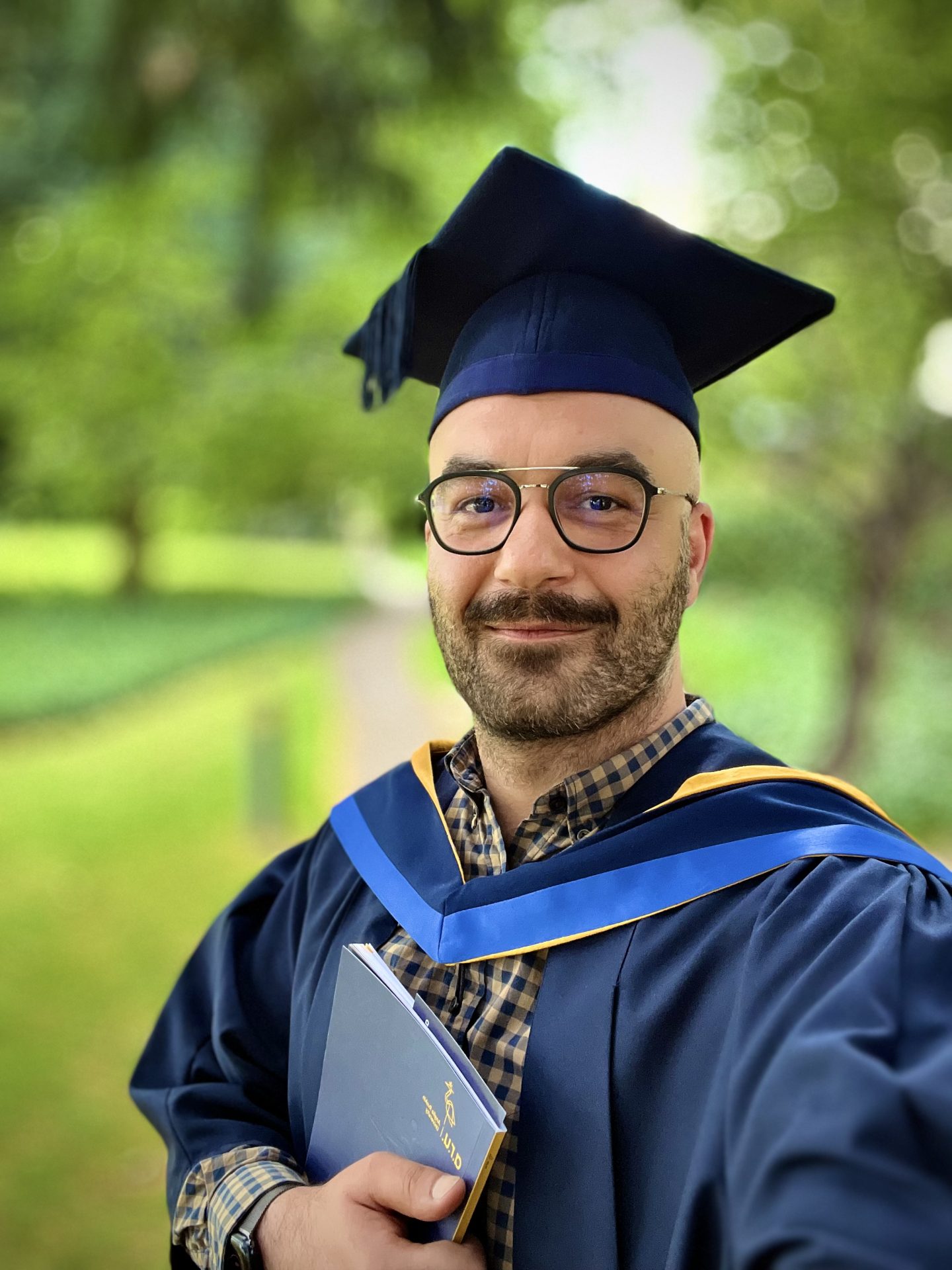About your Montessori masters degree
If you're passionate about making a positive impact on young children's learning and seek to enhance your understanding of alternatives to more formal teaching methods, then our masters in Montessori education online is the course for you. You'll advance your knowledge and understanding of the key principles of Montessori through an interactive Montessori process experience in learning. Successful completion of this Master's degree will open up a wide range of employment opportunities.
Course highlights
- Be one of the first Montessorians to hold a Montessori masters degree
- Develop your expertise in Montessori, providing opportunities for career progression in a variety of roles
- Study our Montessori masters degree over 1 or 2 years
How you'll study
This course is studied 100% online30th April 2024
Fees: £8,200
Payment plans availableCourse overview
A Montessori education program is an increasingly recognised approach to early childhood learning and development. It is a child-led method of learning that despite being more than a century old as a philosophy, is only recently becoming a considered educational approach for the developing of skills and learning in young children.
Our Montessori MA education is the first Montessori master's degree in the UK and it will give you an excellent understanding of the principals of the Montessori approach to early childhood and primary education, and allow you to lead the way in new teaching approaches. You’ll advance your knowledge of young children’s learning and develop your early years Montessori practice and professionalism through the interconnectedness of the three elements of the Montessori triangle: the child, the environment, and the teacher. Our Montessori course will allow you to research and analyse theories of cosmic education, social justice, and the child as an agent of change. You will be given the freedom to take a critically creative approach in your thinking in order to develop your own pedagogical view and follow your own personal cosmic task. The exploration of areas of Montessori in early childhood education and care will enhance your research skills. These skills will also be enriched through modules specifically designed to increase your knowledge of research and inquiry before you embark on your Montessori focused major project.
You’ll be supported by academics who are also qualified Montessori practitioners, offering you a knowledgeable and reflective teaching team who are eager to encourage the study and implementation of Montessori education. This online Montessori qualification will give you the opportunity to flourish as an active learner, prepared to lead practice and learning at a Master’s level.
You will share your learning opportunities with not only other Montessorians, but also through the wider network of students on other Master Education pathways. This will bring depth and variety to your understanding of the Montessorian approach to giving, sharing, and receiving knowledge.
Designed for professionals who want to develop their expertise in Montessori, this course will provide opportunities for career progression in a variety of roles within the Education sector. These include management, mentoring, lecturing and consultancy. If you’re already an early career teacher, then our Master’s will also give you the opportunity to progress to become a specialist coordinator. It’s an excellent choice for continuing professional development for teachers at all levels, as well as leaders and managers within the educational system. This Masters will give you a higher-level award that includes both deeper knowledge of the subject and added transferable skills such as independent working, verbal and written communication, critical and creative thinking, presentation skills, team working, research and project management, and increased self-confidence. Successful completion of this course can also be a stepping-stone towards working in research or university lecturing and can be a pathway to a PhD or EdD.
You may also be interested in the following courses:
MA Education with Early Childhood Studies
MA Education with Leadership and Management
MA Education
MA Education with Special Educational Needs and Disability
Our advisers will be happy to answer any questions you have about the MA Education with Montessori course, studying online or any other aspect of distance learning.
Modules
Exploring Educational Research
Designed to familiarise you with the various research approaches that you may read about, critique, and use during your Master’s course and beyond, this module aims to provide you with a forum for exploring, discussing, and evaluating different types of educational research. You’ll have the opportunity to look at a range of research methodologies; to find, read and review research studies; and to discuss the relevance of research for practice in education across different sectors (from birth to life-long learning). You’ll be encouraged to study research methodologies and educational methods through critical reflection on published work.
Specialist Studies in Learning and Teaching
This module will build upon developments in learning technologies by providing you with the opportunity to explore the context and issues of the pedagogy of technology-enhanced learning. Following an initial consideration of learning, teaching and assessment issues, and practices of technology-enhanced learning, you will consider issues underpinning the development and design of learning materials for electronic delivery such as multimedia and technology led learning. Particular attention will be paid to developing, monitoring, and evaluating skills and procedures to ensure the quality and appropriateness of a flexible technology-enhanced experience. E-learning or technology-enhanced learning can be defined as the use of electronic technology and media to facilitate, support, and enhance learning, teaching, assessment, and research. Please note that this module is available for students in the January enrolment.
Montessori Method: Child, Adult and Environment
The main aim of this module is to give you further insight in the Montessori method, a widely recognised pedagogical approach around the world. The approach is inspired by ‘integral humanism’, which considers children as unique individuals fully able to act with freedom, dignity, and intelligence. It considers Montessori from a historical perspective, her contributions to early childhood, and offers the opportunity to explore the methodologies and teachings of Montessori through contemporary perspectives. Mindful of the importance of the child as an agent of change, you’ll consider the role of the adult and the environment in supporting children in reaching their full potential. Montessori considers leadership at different social levels; by undertaking a Montessori Master’s degree, you will examine literature through the lens of leadership. This degree programme encourages you to develop a personal philosophy of professionalism, that blends individual strengths and interests with the needs of colleagues, parents and families, and the children in your care. Together, these strands will support you, as a Montessori practitioner, to develop a firm but broad foundation for reflective and reflexive practice in Montessori education.
Developing Educational Research
You’ll be supported to develop a high quality research proposal to implement for your postgraduate major project. A workbook approach will guide you through the various elements that need to be considered during the process of planning and preparation for a small-scale educational research study. There will be opportunities to discuss your ideas with your tutor and peers and to present your developing research proposal for feedback. You’ll also learn by giving constructive feedback to your peers. By the end of the module, you’ll be prepared to submit an application for ethical review, to the appropriate research ethics panel, and to embark upon research for the postgraduate major project.
Postgraduate Major Project in Education
The Major Project enables you to demonstrate your ability to raise significant and meaningful questions in relation to your specialism which may involve working at the current limits of theoretical and/or research understanding. You will need to demonstrate the ability to develop solutions to ethical dilemmas that are likely to arise in your research or professional practice. You will gain an understanding of an appropriate methodology, appropriate methods, and an ability to draw meaningful and justifiable conclusions from information that may be complex or contradictory. By embarking on your major project, you will expand or redefine your existing knowledge in order to develop new approaches to changing workplace situations and/or to contribute to the development of best practice. You will then need to communicate these processes in a clear and elegant fashion and evaluate your work from the perspective of an autonomous reflective learner. Research topics will be negotiated with your appointed supervisor. The project may take the form of a written dissertation; a formal presentation and full research paper; an exhibition; a performance; an artefact or the development of software; or other written, aural or visual material. The project may be formed from a combination of these modes but will normally include a written component.
Modules are subject to change and availability.
Assessment
You’ll be assessed via coursework only. This will take the form of patchwork text, presentations, a reflective journal, research workbook, and written reports.
How you'll study
Our masters in Montessori education is studied 100% online.
You’ll study through Canvas, our world-class online Learning Management System (LMS), which can be accessed from your phone, PC, or tablet both at home or on the move. Canvas provides instant access to study materials, forums, and support from tutors and classmates, as well as enabling easy submission of your assignments.
You can choose to study our MA Education with Montessori over 1 or 2 years. Please note that if you choose the 1-year option this is the equivalent of full-time study and may be a challenge if you’re employed full-time or have other life commitments. Our advisers will be happy to talk through your options in more detail.
On successful completion of your studies, you’ll be invited to attend a graduation ceremony on campus. If attending the ceremony in person is not possible then we’ll arrange to have your certificate sent to you.
Supported distance learning
We understand that distance learning is different to traditional campus study and if you’re new to online study you may have concerns or apprehensions about studying your Masters in Montessori education online, and that’s natural.
To help put your mind at ease we have a dedicated Distance Learning Support Team to help and support you throughout your time at ARU, starting with your first online induction and staying with you right through to graduation. In addition, you’ll also be supported by specialist tutors, well experienced in supporting distance learning students.
Once you start your Montessori masters degree, we encourage the creation of online communities and many of our learners find these connections with others invaluable, helping them to stay motivated, share concerns or make new friendships.
Contact us to talk through any questions or concerns or visit our support page for more information about the support services available.
Be part of the University of the Year
We're proud to be the Times Higher Education (THE) University of the Year 2023.
The prestigious THE awards honour ’exceptional performance during the 2021-22 academic year, and reflect ARU’s success in delivering high-impact projects during this period, despite the challenges of the Covid-19 pandemic.
The award recognises the difference we make in the region and our communities – while also acknowledging the broader impact of our world-leading research, and the contributions our students and graduates make to society.

Careers
What could a Montessori masters degree do for my career?
If you're a graduate currently working in a Montessori setting, the Education with Montessori MA will support your professional development further. It could help propel your career towards areas of management, mentoring, lecturing and consultancy. For early career teachers who take this course, they could become specialist co-ordinators.
International students who are practising teachers, lecturers or headteachers will develop their skills, extend their knowledge, and advance their careers through studying this course in the UK.
What job roles can I consider with a masters in Montessori education?
An Education with Montessori MA could lead to a wide range of career advancement opportunities within the education sector including Montessori teachers and nursery managers. These are just some of the job roles that an Education with Montessori MA graduate may consider, possibly with further training or experience depending on the role:
- Montessori Teacher
- Specialist Co-ordinator
- Nursery Manager
- Head of Curriculum
- Assistant Headteacher / Headteacher
- A teacher of Montessori education / lecturer
- Education Consultant
If you are looking for more information about these job profiles and potential salary earnings see Prospects.ac.uk. It’s important to note that salaries can vary widely depending on the job role, employer, industry sector and location.
What skills will I get from a masters in Montessori education to help my career?
You’ll enhance your CV with a higher-level award that includes both deeper knowledge of the subject and added transferable skills such as:
- independent working
- verbal and written communication
- critical and creative thinking
- presentation skills
- team working
- research and project management
- increased self-confidence
What can I study after a Montessori masters degree?
Successful MA students, who particularly enjoy engaging with the academic environment and who wish to pursue academic careers in lecturing and/or research, may progress to doctoral study at Anglia Ruskin University or elsewhere.
Careers Advice Service
Once you become an ARU student you will be able to access our Employability service to help you at whatever stage of your career, whether that’s landing your dream job or the next progression step.
We offer:
- careers advice, including one-to-one online and telephone appointments with our experienced advisers
- help with your CV, job searches, applications, and interview preparation
- an online portal packed with useful careers resources
- our Employability Programme, which helps you hone the skills employers say they want in graduates.
Entry requirements
You’re expected to have a first degree, with honours, at a minimum final classification of Lower Second (2:2) or equivalent.
If English is not your first language you will be expected to demonstrate a certificated level of proficiency of at least IELTS 6.5 (Academic level) or equivalent English Language qualification, as recognised by Anglia Ruskin University.
As a distance learner, you’ll also need a suitable computer with internet connection, together with sufficient IT competence to make effective use of our online learning management system (LMS) with high-speed internet and email.
Please note: Our published entry requirements are a guide only and our decision will be based on your overall suitability for the course as well as whether you meet the minimum entry requirements. Other equivalent qualifications may be accepted for entry to this course.
Fees & funding
Fees
The full tuition fee for this Montessori masters degree is £8,200.
The tuition fees you pay each year will be between £4,100 and £8,200 depending on how long you take to complete the course. You can choose to study our Education with Montessori in either 1 or 2 years.
Accredited Prior Learning may reduce the tuition fees. This will be confirmed once your application has been submitted.
Funding
Your course can be fully funded by the Postgraduate Student Loans now available (subject to eligibility).
We offer payment by instalments, so you can spread the cost of studying with us.
For military students: You can use your ELCs towards this course. Anglia Ruskin University is a recognised ELCAS provider (number 1007). Please contact your Learning Centre for details of ELC, eligibility and how to apply.
What our students say
I work full time and have a family. Being able to take one module at a time and having the course requirements set out clearly at the beginning really helped me plan ahead and build study into my life.
I was able to manage my job, family life and study in the comfort of my home whilst still developing my career prospects.
For a mature student, distance learning is a match made in heaven. The Learning Management Systems are state of the art and the course tutors are committed to their responsibilities and care about you
ARU was a great choice that allowed me to achieve my personal and professional ambitions. I felt supported, empowered, and accomplished.











